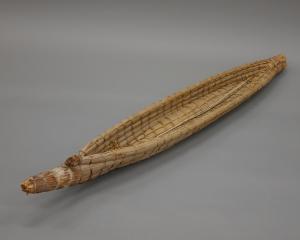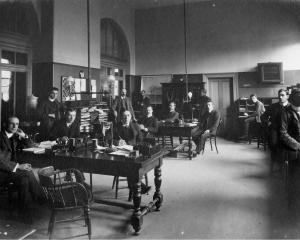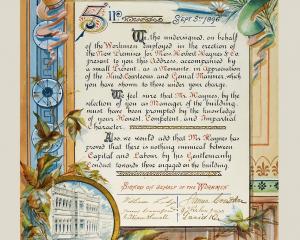

It has not always been this way, and being a woman in a male-dominated sphere has proven difficult. We have grown up with labels such as geek and nerd, and feelings of not being "cool" enough at school because we enjoyed games instead of going out.
Research has begun to show that gaming is no longer a hobby for 12-year-old boys. Women around the world are admitting that they too enjoy gaming. In 2020, 41% of gamers in the United States and 40-45% of gamers in Asia were female. Dr Jeffrey Brand and Dr Jan Jervis, who co-authored the Digital New Zealand 2022 report, found that in a study of more than 800 households, 73% of New Zealanders play video games, and 48% of these gamers are female. This is nearly half of the gamer population, and as more women become involved with the writing, production and design of games, the numbers will continue to rise. So, what is it about gaming that is luring the female population into the domain?
The new exhibition "Code Breakers: Women in Games" at Tuhura Otago Museum, celebrates the contributions of New Zealand and Australian women to an industry that has been rife with sexism and discrimination. I thought it would be interesting to get the perspectives of some of the gamers on the museum’s staff about their love of gaming and the struggles they have faced as women who game.
When asked about their favourite games, the team admitted to enjoying rough and tumble games, not the frilly cute dress-up games that men associate with women who game.
One of our staff, Toni, loves the game Overwatch!. Because it is "so addictive and you can play different game styles and with a team! When I’m feeling hardcore I’ll be a tank and play Roadhog or Doomfist".
Lana loves a good RPG, such as The Witcher or Elder Scrolls. She says that she has found many action-based games to be "very boring, as I find they are mostly male heavy characters plus war themed. I enjoy following game series such as the reboot of the Tomb Raider series, following a female protagonist with a loose archaeology and adventure theme."
These women believe that gaming is an excellent form of escapism in a world where social anxiety and Covid make socialising difficult. Marijn said, "when the first lockdown happened in 2020, and we couldn’t go anywhere, it felt nice to finish work for the day and then go and fight robot dinosaurs inHorizon or to take care of my silly little farm in Stardew Valley and forget about Covid for a bit". Gaming allows people to be social, and interact with others over a different, socially-safe platform.
However, it is not just a form of fun for these women. Gaming has proved to be a brain stimulant, encouraging people to think strategically and solve puzzles to progress the game, and take part in the action. Lana loves the "adrenaline rush you get from completing quests".
Yet, while these wonderful women are happy being gamers, they have admitted to a feeling of shame or dissatisfaction with identifying openly as a "gamer". One staff member who chose to remain anonymous for this reason, said that "when I was a teenager, mentioning gaming would often get me quizzed on gaming trivia by random male self-professed ‘gamers’. So that’s both negatively impacted my view of the term, and also made it so that I’m a bit cautious about the audiences I mention games to. I don’t particularly care if someone thinks I’m not a ‘real gamer’ because I don’t know the name of Peach’s childhood pet, or whatever, but I do find that kind of attention exhausting and want to avoid it."
While there are still negative connotations around women in gaming, Code Breakers: Women in Games is proof of the changes that are occurring in the industry, with women emerging as key players. It is hoped by the staff here at Tuhura Otago Museum, that the stereotyping and sexism found in the gaming industry will one day be a thing of the past, and we can all enjoy gaming without marginalising or excluding others.
Exhibitions
- There are two free, gaming exhibitions at Otago Museum, with an array of PC, tablet, and big-screen games to try, some that are made by local Dunedin studios.













